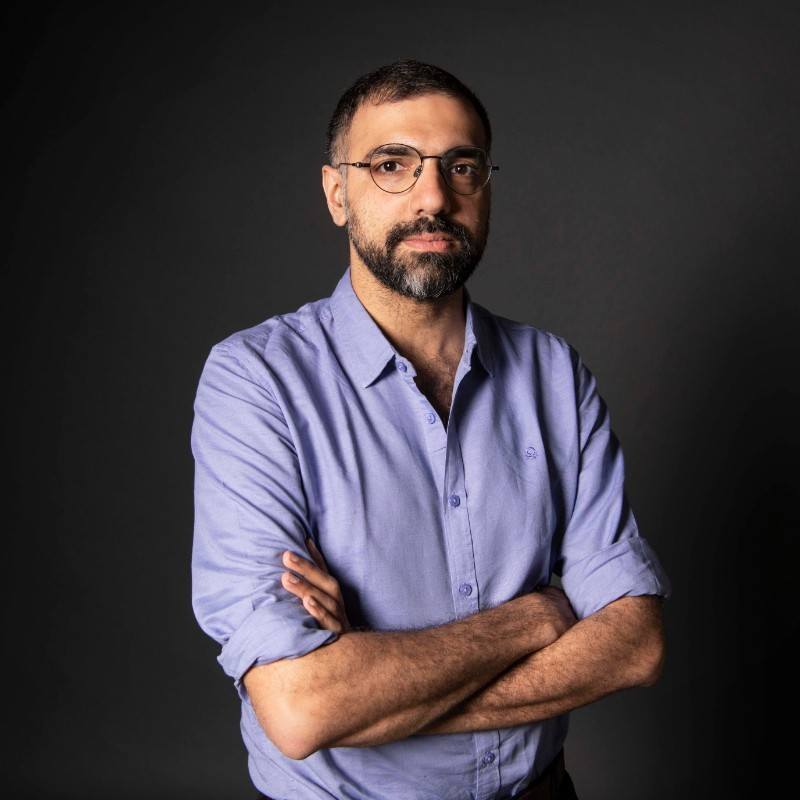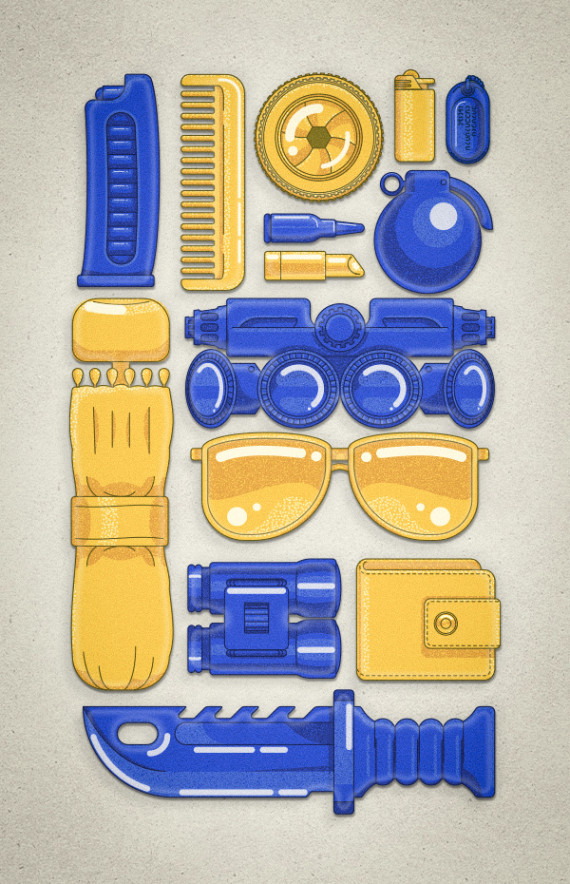
Notes on how to survive a war • Aman Sethi
Posted: 23rd November 2025

Aman Sethi
Editor-in-chief
openDemocracy’s reporters made two trips to Ukraine this year: I travelled to Lviv, Kyiv and Odessa in the spring around the time of the Ukrainian and Russian delegations met face-to-face in Istanbul, the first such meeting between the two sides since the simmering conflict ignited into full-blown war in 2022.
The tragedy of war, as I’ve learnt from years of conflict reporting, is it takes almost everything we hold sacred and renders it profane. “For me, as a writer, it is crucial to be able to feel things,” a Ukrainian writer turned soldier told me, before adding, “Right now, the blunt reality of things is that I am killing Russians. And I’m trying to get better at it.”
This week’s edition opens with a reported essay in which I speak with Ukrainian writers, philosophers, poets, anarchists and soldiers to understand how the war has shaped how they think. In writing this essay, I was deeply influenced by the work of Slovenian philosopher Renata Salecl; and so it is she that I turned to when we sought a guest for this week’s podcast.
My colleague Sian Norris was in Lviv, Kyiv and Kharkiv earlier this month, accompanying a humanitarian convoy of workers as they delivered aid to their comrades in the Ukrainian labour movement. Her richly detailed dispatches offer glimpses of how a wide cross section of Ukrainians – children, coal miners, former athletes, the LGBTQ+ community — are doing everything they can to hold together what remains of their country.
What does war do to the aggressor? When the fighting is far away, and the dead and injured banished from the national consciousness? Also in this edition, is a fascinating account of what the managers, IT workers, business owners, engineers, and creative workers think of a war that has both cut them off from the rest of the world, but also enriched them economically.
As always, we appreciate disagreement almost as much as we enjoy validation, so send us your thoughts and comments, and forward this newsletter to someone you think will enjoy it.
Notes on how to survive a war • Aman Sethi
This spring, a Russian missile slipped through Ukrainian air defences and crashed into a three-storey building, killing 13 members of an extended family, save for a young girl who was pulled free from the wreckage.
When I arrived a few weeks later, an area the size of two tennis courts was flattened into rubble, the windows of every apartment looking out into the blast zone were blown out by the explosion and now boarded with plywood, parked cars were mangled out of shape, the paint burnt off their chassis. Somehow, amidst all this wreckage, a few walls of the building were still standing, wallpaper intact, fittings still protruding from the upright surfaces.
On a small rectangle of grass, not far from the blast site, neighbours had assembled a small shrine to the dead: photographs, bouquets of red plastic flowers, two basketballs scribbled with messages of condolences, dozens of stuffed toys, and a large plastic flask of drinking water.
Around the corner on Aviakonstruktorska street, where aeronautical engineers once lived in the Soviet-era apartments and worked at the nearby headquarters of Antonov (makers of the An-225 Mriya, the largest aircraft ever built), Kyiv felt like any other Eastern European city awakening from the winter…
Russia refracted • Solomon Petrov, Veronika Travina
The Russian war in Ukraine has turned Russian society into the subject of heated political discussion and much speculation. Are Russians simply conformists? Or are they resisting militarism on an everyday, rather than openly political, level? At bottom, the war raises an awful question: what kind of society would allow such a conflict to occur?
Today, there are two popular images of Russian society.
One, drawn by the Kremlin, presents a people united around the state, supporting the ‘special military operation’, demanding victory over Ukraine, and proclaiming the advent of a new era and a new world order. The other, deriving from the most radical part of the liberal class, depicts a fragmented and intimidated population mired in cowardly opportunism.
Both images allude to totalitarianism characterised by mobilisation and atomisation, bloodthirstiness and conformism. Neither is wholly accurate…
From frontlines to coal mines, trade unions are fighting for Ukraine’s future • Sian Norris
“Kharkiv is wounded,” says Igor Prikhodko, “but it is alive and refusing to surrender.”
Prikhodko is the director of Kharkiv’s Specialised Sports College, an elite training centre less than 30 kilometres from Ukraine’s border with Russia, whose graduates include Olympians and world champions. On 26 March 2024, the college was hit by short-range Iskander ballistic missiles – the third time it had come under attack. The assault has since been documented as a war crime by the city’s branch of Ukraine’s National Police Investigation Department.
Now, in November 2025, Prikhodko and I are standing on the college’s roof, having picked our way through broken glass and rubble, past rooms too unsafe to enter. Above us is Kharkiv’s grey autumn sky. At our feet is a large crater, where the most recent attack led the roof to collapse inwards. Through the gaping hole, we can see the destroyed ruins of what were once students’ dormitories…
One in 10 rescued Ukrainian children sexually abused, warns NGO • Sian Norris
In the suburbs outside Kyiv, a four-year-old boy whizzes up and down a shared garden on his bike as his father watches from a wheelchair. The man is a double amputee, having lost both legs in a Russian drone strike on their home in Kherson. The same strike killed the boy’s mother.
Nearby, a slightly older child sits outside a modular home. He has the chubby cheeks of most boys his age, and a shock of thick black hair that matches his black eyes. It’s his pose that catches your attention, though; his arms wrapped tight around his legs, his chin resting on his knees as he huddles himself up to try and keep out the threats of a dangerous world.
Almost all that either child has ever known in their short lives is war: sirens, shelling, violence and fear…
‘I’ll die as a gay man’: LGBTQ+ rights in a time of war
If I die, I’ll die as a gay man. And if I survive, I won’t hide it anymore.”
This was how Oleksandr Demenko came out to his mother. It was spring 2022, and the soldier, now aged 26, was fighting to defend the Azovstal plant in Mariupol. Russian troops were close to capturing the steel plant, and communications were about to go down. Determined not to die without telling his mother who he really was, Demenko used those final moments of contact with the outside world to call her and speak his truth.
Then, the phones were cut off. Russia seized the plant and occupied the city of Mariupol. Demenko was held captive as one of the Azovstal Defenders for 20 months, a gay prisoner of war of a regime that has banned the “LGBT movement”, labelling it “extremist”...
End Times with Renata Salecl: What Post-Socialist Societies Teach Us About Today • In Solidarity
We’ve normalised the idea that the world is ending, that society is tearing itself apart, that our countries — wherever we live — are falling apart. But what does that really look like? What does it feel like? What emerges in the aftermath?
In this episode host Aman Sethi speaks to Renata Salecl, a Slovenian philosopher, sociologist and political theorist to decode how the experiences of post-socialist countries can help us understand the crisis gripping the West.
Listen on SpotifyListen on Apple PodcastsForeign reporting is incredibly expensive, and reporting from warzones is even more so. But places like Ukraine are where fearless, independent media is needed the most.
openDemocracy is committed to putting reporters on the ground to help you see through all the misinformation, disinformation and outright propaganda. Support fearless conflict reporting, donate today.
WEEKLY POLL
Weekly Poll: Is it feasible for Ukraine to join the EU but not NATO as Trump’s plan envisions?
PREVIOUS WEEKLY POLL RESULTS
Weekly Poll: Should the British armed forces end under-18 recruitment?
Every Friday we showcase some of the most interesting or thought-provoking comments made on our website or emailed to us that week. This round-up is emailed exclusively to subscribers of our daily newsletter. Sign up here to ensure you don’t miss out on this as well as the best of our investigations, analyses and op-eds.
COMMENTS
Sign inOur award-winning journalists can now respond directly to your comments underneath the articles on our site!
Just sign in or register underneath any of our articles to start leaving your thoughts and questions today.
Sign in and join the conversation